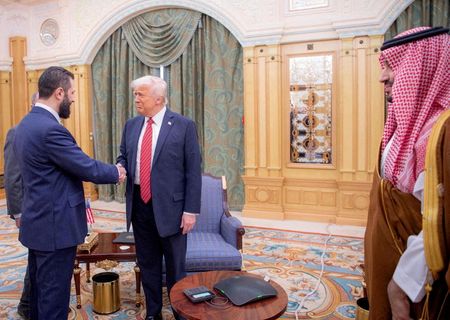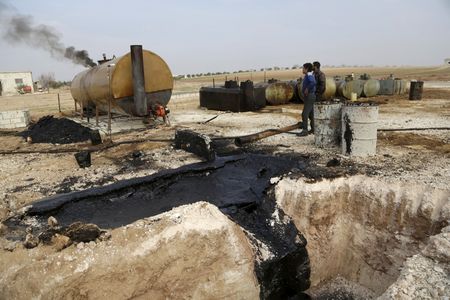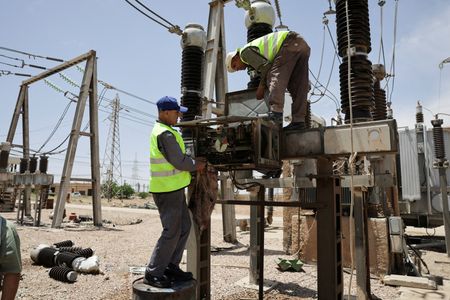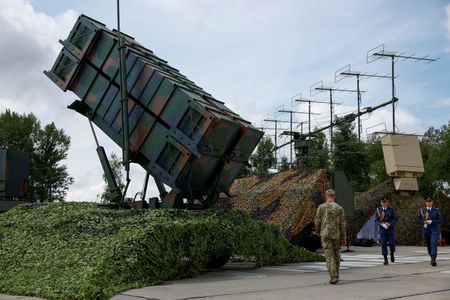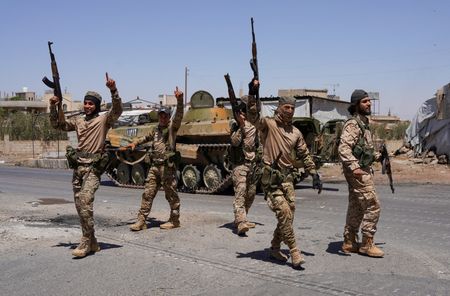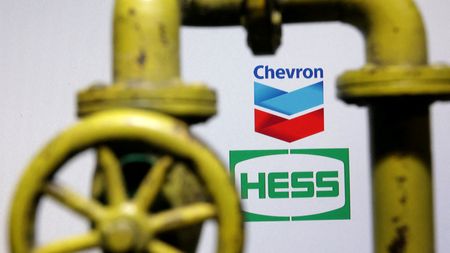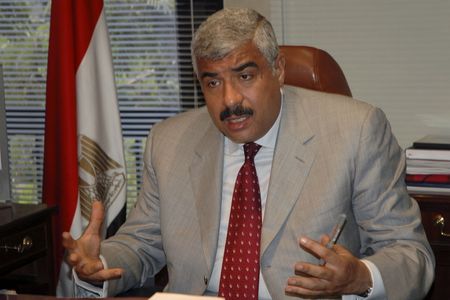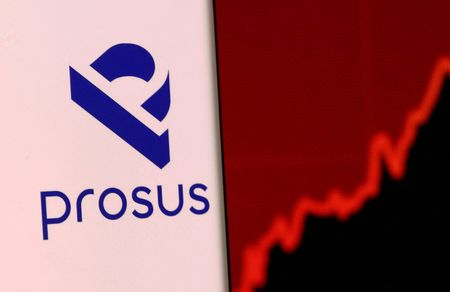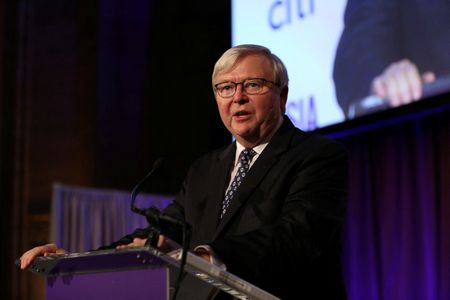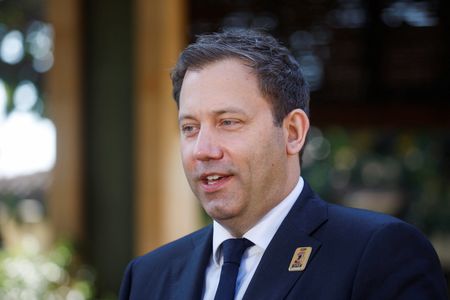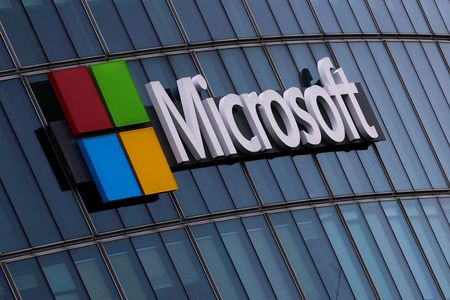By Timour Azhari
DAMASCUS (Reuters) -U.S.-based firms Baker Hughes, Hunt Energy and Argent LNG will develop a masterplan for Syria’s oil, gas and power sector, Argent LNG CEO Jonathan Bass said on Friday, in a partnership aimed at rebuilding energy infrastructure shattered by 14 years of civil war.
The move marks a swift turnaround as U.S. companies enter a country previously under one of the world’s tightest sanctions regimes that U.S. President Donald Trump lifted at the end of June.
The companies plan to help explore and extract oil and gas and produce power to help get the economy running as the government seeks to put Syria back on the map. The plan comes after a dash by other companies, many from Gulf Arab states, to sign deals to bolster Syria’s power generation and ports infrastructure.
Details of the plan have not been previously reported.
“We are initiating the development of a comprehensive masterplan for energy and power generation in Syria, based on a preliminary assessment of opportunities for near-term improvements in generation capacity and service delivery,” Bass told Reuters via phone.
“Our efforts aim to support the revitalization of the energy sector in coordination with relevant stakeholders,” he added.
“This includes potential activities across the value chain—from exploration and production to electricity generation, including combined-cycle power plants,” he said, declining to elaborate further.
Argent LNG, which is developing a liquefied natural gas export facility in Louisiana, in January signed a non-binding agreement to supply Bangladesh up to 5 million metric tons of the fuel annually, the first major U.S. LNG supply deal since Trump began his second term.
Reuters received no immediate response to emailed questions to global energy services provider Baker Hughes, while Texas-based oil and gas company Hunt Energy declined comment.
The plan is to begin with areas west of the Euphrates River, under control of the Syrian government.
Syria’s east, where much of its oil is produced, remains controlled by the Syrian Democratic Forces, a U.S.-backed and Kurdish-led armed group that Washington has urged to integrate with the new authorities in Damascus following the ouster of former Syrian strongman Bashar al-Assad.
After 14 years of war, Syria’s electricity sector is severely damaged, generating only 1.6 gigawatts of electricity, down from 9.5 GW before 2011. Billions of dollars of investment are needed to fix the sector, so the cash-strapped state is looking at private investment or donors to foot the bill.
In May, Syria signed a memorandum of understanding with Qatar’s UCC Holding to develop $7 billion worth of power generation projects, including four combined-cycle gas turbine power plants and a 1,000-MW solar power plant in southern Syria.
‘GROWING INTEREST’
In a post on LinkedIn on Thursday, Syrian Finance Minister Yisr Barnieh said the three U.S.-based companies were forming a coalition to invest in Syria and develop the country’s energy sector.
“This visit signals a growing interest among American companies and investors in engaging with Syria,” he said.
Bass, Hunt Energy CEO Hunter L. Hunt, and a senior executive at Baker Hughes arrived in Syria on a private jet on Wednesday morning and were meeting with Barnieh when Israel conducted a series of airstrikes on Damascus that shook the city, Bass said.
“It was big,” said Bass, who has been working on the energy project since visiting Damascus and meeting with Syrian President Ahmed al-Sharaa in April.
He was part of both state-led and informal efforts to lobby Trump to meet with Sharaa.
The landmark meeting took place in mid-May with a big push from the leaders of Turkey and Saudi Arabia, and Trump announced the end of Syria sanctions. As they are slowly phased out, investor interest in Syria has grown.
A week of violence in the southern province of Sweida, however, has darkened the mood in the country and left at least 321 people dead, according to the Syrian Network for Human Rights, a human rights group.
“To work in Syria, there are potholes, there are ditches, it has craters,” said Bass.
“If you don’t have the team that’s willing to accept craters, don’t come.”
(Reporting by Timour Azhari in Damascus; Editing by Marguerita Choy)

